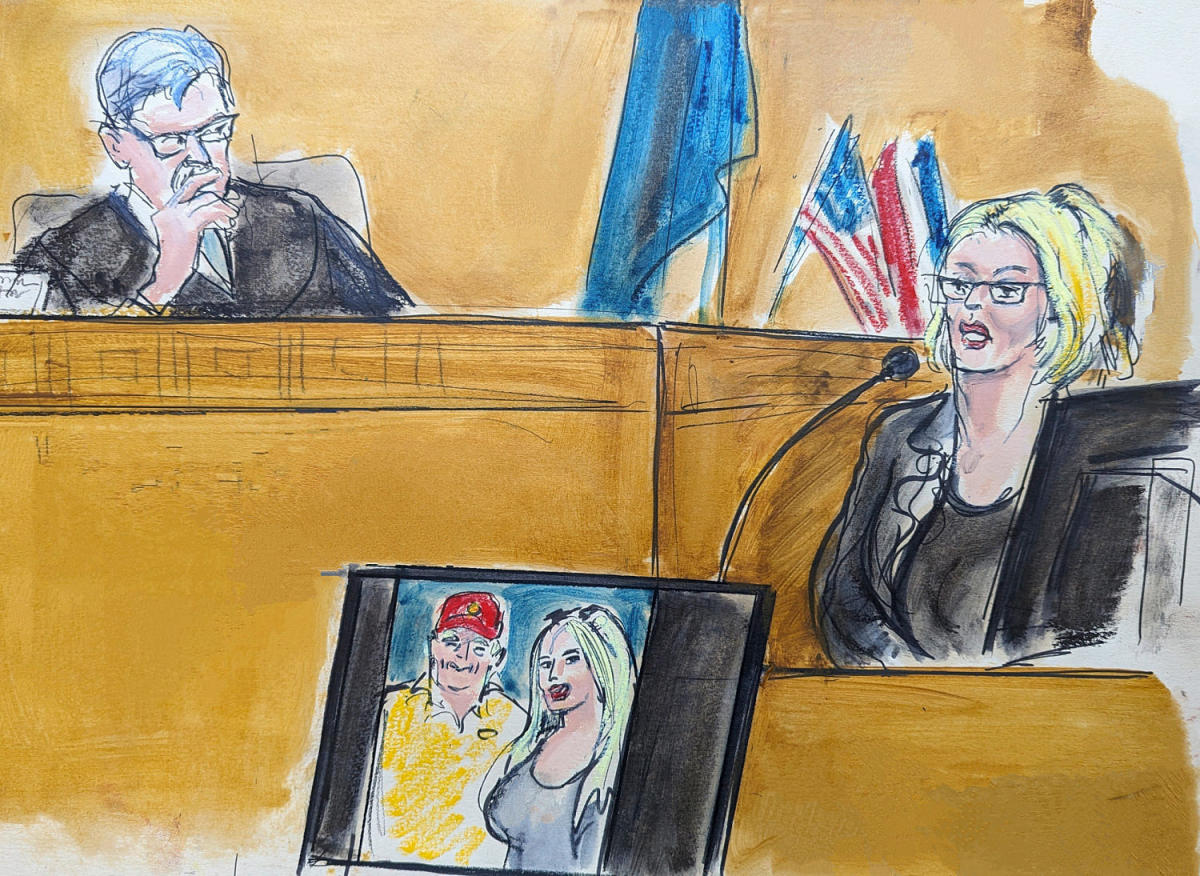When Ronald Reagan sought the Republican Party’s presidential nomination in 1980, it was an open question as to whether the former governor’s family life would be disqualifying. Voters had never before elected a divorced president, and there was great uncertainty about whether the electorate was prepared to put aside this perceived taboo.
When Bill Clinton sought the Democratic Party’s presidential nomination 1992, the then-governor publicly conceded that he’d “caused pain” in his marriage — an apparent euphemism for adultery. This, too, generated ample discussion about the limits of what Americans were prepared to tolerate from their candidates for national office.
These quaint lines of inquiry came to mind reading this Politico summary on Stormy Daniels’ testimony this morning in Donald Trump’s ongoing criminal trial in New York City. After prosecutors assured the court that there wouldn’t be any “descriptions of genitalia” during the testimony, there were “awkward moments” in the courtroom as the porn star talked about her alleged sexual encounter in Trump’s hotel room at a California golf resort in 2006 — a year after Trump married Melania Trump.
I’m imagining a thought experiment in which I had a conversation with political observers from decades past. “Well, Americans elected a television personality to the nation’s highest office,” I’d say, “and after he was thrown out of office for being a corrupt and incompetent failure, he was accused of several dozen felonies, including falsifying business records related to the hush-money payments he made to a porn star he allegedly had sex with while cheating on his third wife.”
“Oh,” I’d add, “and this is barely in the top 10 of the biggest scandals surrounding the former president.”
It’s at this point that I’d wait for the inevitable questions about whether social conservatives and evangelicals consider the defendant one of the biggest villains in modern American life, leading me to explain, “Actually, they revere him with borderline-religious reverence.”
The New York Times had an interesting report the other day on Trump’s youngest supporters, many of whom will be voting in their first elections this year, who don’t quite remember what American politics was like before.
The presumptive GOP nominee, the article noted, represents “the normal politics of their childhood.”
For these young adults, folly has become normal. They’re simply accustomed to a toxic and debased political environment in which absurdities are the background noise of their civic lives, to the point that they’re not even recognized as ludicrous.
But the trouble is, it’s not just young adults. Too much of the political world has simply become acclimated to truly ridiculous circumstances — such as those unfolding today in a Manhattan courtroom. Many have gotten so used to Trumpified politics that it becomes easy to lose sight of the fact that we’re confronted, on a daily basis, with insanity that would’ve been unthinkable in the recent past.
It’s worth pausing from time to time to realize not only that American politics hasn’t always been like this, but also that it doesn’t have to remain this way. Breaking free of a bizarre timeline is a matter of will. It can start with realizing that the broader context surrounding Trump’s trial reflects political madness.
This article was originally published on MSNBC.com
